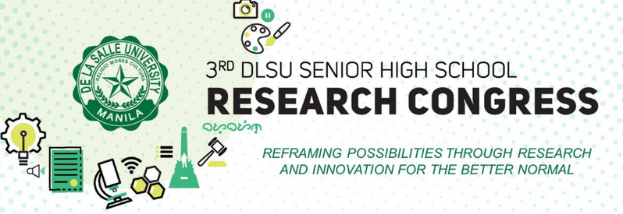Document Types
Paper Presentation
Research Theme (for Paper Presentation and Poster Presentation submissions only)
Gender, Human Development, and the Individual (GHI)
School Name
De La Salle University Integrated School, Manila
Start Date
29-4-2021 1:00 PM
End Date
29-4-2021 3:00 PM
Abstract/Executive Summary
In recent years, there has been an increase in employment opportunities available to persons with disabilities. Despite this, stigma surrounding the employment of the Deaf community in particular remains, causing higher unemployment rates as many employers show a preference for those with motor disabilities. Socialization is often the cited reason for this. Deaf employees face several communication barriers, such as the lack of a common linguistic background with their co-workers, as the former is limited to manual communication while the latter uses verbal. To overcome this barrier, some workplaces utilize Filipino Sign Language (FSL) to facilitate effective communication between Deaf and hearing co-workers. This study aimed to determine the impact of the Extent of FSL Use on the Quality of Interpersonal Relationships in the workplace, along with the Personal and Work-Related Characteristics generally affecting FSL Use. Through the use of a self-administered questionnaire and purposive sampling limited to Deaf employees, a positive correlation was found between the Extent of FSL Use and the Deaf employees’ perception of the Quality of Interpersonal Relationships with hearing colleagues. Factors such as Nature of Work, Educational Attainment, Industry, Network, and Organizational Size were also found to influence the Extent of FSL Use in the workplace.
Keywords
Filipino Sign Language; Deaf; PWD employment; workplace interpersonal relationships; workplace dynamics
Initial Consent for Publication
yes
“I saw the sign”: Extent of Use of Filipino Sign Language and its Impact on Interpersonal Relationships in the Workplace among Deaf employees
In recent years, there has been an increase in employment opportunities available to persons with disabilities. Despite this, stigma surrounding the employment of the Deaf community in particular remains, causing higher unemployment rates as many employers show a preference for those with motor disabilities. Socialization is often the cited reason for this. Deaf employees face several communication barriers, such as the lack of a common linguistic background with their co-workers, as the former is limited to manual communication while the latter uses verbal. To overcome this barrier, some workplaces utilize Filipino Sign Language (FSL) to facilitate effective communication between Deaf and hearing co-workers. This study aimed to determine the impact of the Extent of FSL Use on the Quality of Interpersonal Relationships in the workplace, along with the Personal and Work-Related Characteristics generally affecting FSL Use. Through the use of a self-administered questionnaire and purposive sampling limited to Deaf employees, a positive correlation was found between the Extent of FSL Use and the Deaf employees’ perception of the Quality of Interpersonal Relationships with hearing colleagues. Factors such as Nature of Work, Educational Attainment, Industry, Network, and Organizational Size were also found to influence the Extent of FSL Use in the workplace.


